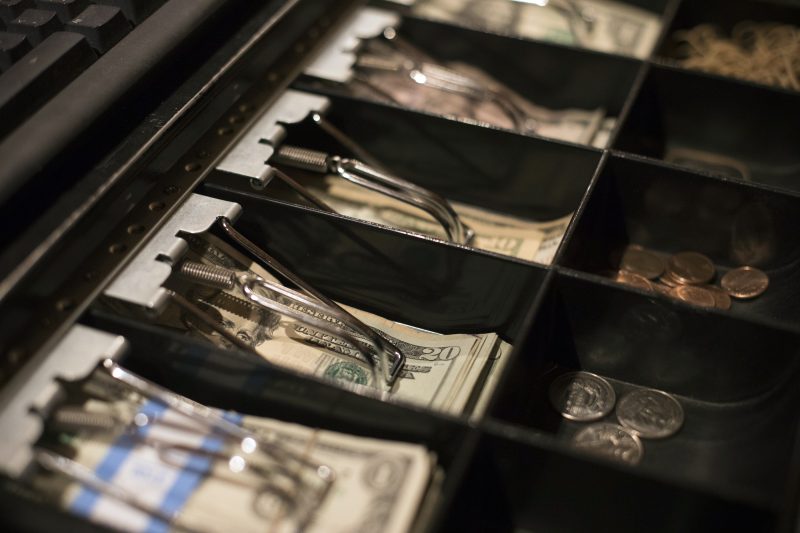Don’t expect correct change when paying with cash, some businesses warn

(NEXSTAR) — As the saying goes, all good things must come to an end, and for the penny, the end may be coming sooner than expected.
Earlier this year, President Donald Trump called on the Treasury Department to stop minting new one-cent coins, calling them “wasteful.” A few months later, the Treasury confirmed it would stop putting new pennies into circulation in early 2026, with a spokesperson telling the Wall Street Journal in May that the final order of blanks had been placed.
Once there are no more blanks available, the U.S. Mint will stop producing pennies, the spokesperson said at the time. Without pennies, businesses will have to round cash transactions up or down, they added.
While 2026 is still more than two months away, some businesses have already found themselves facing a penny shortage.
As of late September, several Federal Reserve coin distribution sites have stopped fulfilling penny orders, taking penny deposits, or both.
The National Association of Convenience Stores warned last month that supply shortages were starting to emerge amongst its members, with more expected to be impacted.
Nexstar’s KFOR recently confirmed that dozens of Love’s convenience stores are being forced to round up change in favor of the customer during cash transactions. Penny shortages were expected in mid-to-late 2026, but the timeline had been sped up, leaving at least 54 stores feeling the pinch.
In early October, Wisconsin-based Kwik Trip announced it would adopt a penny-free cash rounding policy. The convenience store chain said it would round down cash purchases to the nearest five cents, Nexstar’s WFRV reported. Customers can, however, still pay with pennies — if they have them.
Other retailers have been warning cash-paying customers of potential impacts as well.
In a late-September Reddit thread, users claiming to be Home Depot employees said their stores had posted signs warning of a penny shortage, telling customers they need exact change for cash transactions. The home improvement chain did not respond to Nexstar’s repeated inquiries regarding the online comments.
Similar signs were seen at a PetSmart in Wisconsin and a Sheetz location in Pennsylvania.
In a statement to Nexstar, PetSmart confirmed its stores are “temporarily asking customers to pay with exact change when using cash, or to use credit, debit or other electronic payment methods.”
“We’re also offering customers the opportunity to round up their total to the nearest dollar, with the difference donated to PetSmart Charities to help pets in need,” the statement continued. “We appreciate our customers’ understanding and flexibility as we navigate this nationwide issue affecting retailers across the country.”
Nick Ruffner, public affairs manager for Sheetz, told Nexstar that some of the company’s stores “may experience limited availability of pennies.”
“To help manage this, we’re informing customers with in-store signage and encouraging the use of SheetzGo!, mobile app ordering or cashless payment options like debit and credit cards whenever possible,” Ruffner added. “Customers can also choose to trade in their extra pennies for a free self-serve drink or donate their spare pennies to support Sheetz For the Kidz. Donations can be processed through the register at all Sheetz locations to ensure all funds go directly to Sheetz For the Kidz, and the coins will then be recirculated for other customers.”
A spokesperson for Burger King also told Nexstar that while its U.S. restaurants are still accepting pennies, “exact change may not be possible” due to the shortage. Impacted Burger King locations may encourage customers to pay with exact change when using cash, they added.
There are concerns, however, about the potential confusion that rounding may cause among consumers. While Love’s and Kwik Trip are rounding in favor of the customer — rounding change up to the nearest nickel and rounding the total transaction down to the nearest nickel, respectively — there is precedent for transactions to be rounded in either direction.
Since Canada ditched its penny in the early 2010s, cash purchases in the country have been rounded up or down to the nearest nickel: a $19.82 purchase becomes $19.80 while $19.83 becomes $19.85.
However, the U.S. has so far not established such a process. In a letter to the Senate Banking and House Financial Services Committees late last month, the NACS called on lawmakers to establish a national law that would allow businesses to round cash transactions up or down, saying that “at least ten states and localities have cash laws that would prohibit this practice.”
A bill to do just that (and to halt the minting of the penny) was introduced by Rep. Lisa McClain (R-Mich.) in April. The House Committee on Financial Services recommended that an amended version of the bill be passed. It has since been placed on the calendar; however, amid the government shutdown, it’s difficult to say when the bill could reach the House floor, if at all.
As for now, if you’re planning to pay with cash at a store or restaurant, you may want to prepare to receive slightly more change than you’re actually owed.